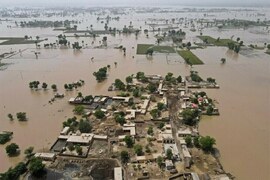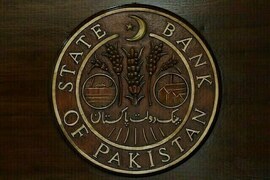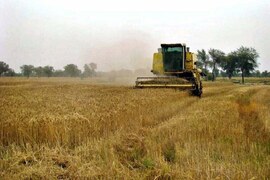Australia has the desire to support the new government of Pakistan in consolidating democracy, growing the economy, providing better services to the people and ensuring peace and stability.
Australian High Commissioner in Pakistan, Zorica McCarthy, stated this in her address to members of Pakistan Institute of International Affairs (PIIA) on 'Australian Security Policy' here on Saturday.
Her statement came at a time when the new government in Canberra is conducting a review of its foreign and security policy. Zorica, who is here since August 2004, said her government had welcomed the national and provincial assembly elections in Pakistan and had recognised that the country has made significant progress on democratic transition.
She said that Pakistan's progress on the path of democratic transition was important not only for the South Asian country but also for the entire world. Giving out Australia's three-pillar foreign security policy, the envoy said that in today's globalised world some of Australia's greatest security challenges include terrorism, weak and failing states, mitigating climate change which are similar to those faced by Pakistan.
She said that Australia and Pakistan have been sharing a number of key interests in areas ranging from strengthening bilateral relations, mutual interest in regional peace, security and stability to seeking global solutions to global problems.
Canberra had welcomed the priority Prime Minister Yousaf Raza Gillani had accorded to the fight against terrorism and extremism and was ready to assist Pakistan, the High Commissioner said. She said that with recent changes of government in the two countries there was an impetus to re-energise bilateral relationship.
Stressing the need for having "broader" and "more encompassing" approaches the Australian envoy said that traditional approaches were no longer sufficient to deal with the huge range of threats the states were facing today.
"We will be keen to see a comprehensive program to address extremism, which must also take into account the situation in Afghanistan, which in turn impacts directly on Pakistan," she said, adding: "We are actively exploring options for Australian support to communities and development in the border regions, especially FATA."
Lauding Pakistan for supporting the international community's efforts in Afghanistan, Zorica offered condolences on behalf of the Australian government for those Pakistani military personnel who lost their lives for maintaining security in the tribal areas.
She said that Australia was providing some 25 million dollars in ODA including health, education (including scholarships) and agriculture to Pakistan this year with an expectation that the figure would significantly be increases in 2008-09.
Pakistan and Australia, she said, had inked a memorandum of understanding in 2005 on counter-terrorism co-operation under which the former had an umbrella to assist the latter on terrorism-related prosecutions in Australia. "To enhance this co-operation, we are also seeking to negotiate extradition and mutual assistance treaties," she said.
Recognising the importance of non-military efforts in securing stabilisation gains in Afghanistan, Zorica said the Australian government had made a firm commitment to contribute to long-term stability and development in the war-torn country.
"We have contributed $450 million in humanitarian and reconstruction assistance since 2001, including the announcement in Bucharest of $10 million for de-mining and will soon expand our policing support, including for counter-narcotics," she said. Summarising her policy address the Australian official said her government was seeking to be a valued partner and interlocutor of Pakistan.
BR100
15,235
Increased By
150.4 (1%)
BR30
44,824
Increased By
812 (1.85%)
KSE100
149,971
Increased By
1353.3 (0.91%)
KSE30
45,655
Increased By
407.2 (0.9%)






















Comments
Comments are closed.